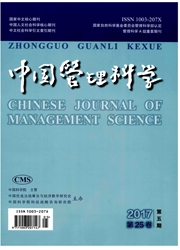

 中文摘要:
中文摘要:
对群体性事件产生与演化规律的研究已经成为社会管理的重要主题,而发展迅速的计算社会学方法为深入研究这一问题提供了新的途径。在已有研究的基础上,通过考察群体性事件的部分案例,可以发现个体对政府的信任程度、个体利益诉求渠道和社会普遍情绪这些内生性因素构成了群体性事件发生的整体环境要素,这些内生性因素的存在和组合达到一定水平,就构成了群体性事件发生的重要条件,而在这些宏观条件下,个体之间通过社会网络产生的关联和相互作用对群体事件的产生与演化也有重要影响。通过基于社会网络的计算社会学模型的模拟检验,本文对群体性事件的产生与演化进行了计算分析,讨论了整体环境和个体关联的各要素的作用,获得了部分内生性因素在其他条件既定时引发群体性事件的临界值。研究工作为进一步研究群体性事件的演化与形成机制提供了必要的模型基础。
 英文摘要:
英文摘要:
The study of the generation and evolution of emergent collective event has become an important topic of social management.The computational social science approach provides a new method to analyze this issue deeply.By reviewing the previous research and empirical analysis of several cases,the global factors of emergent collective events are suggested.They are the level of public trust in the government,interest demand or social problem solving mechanism and the social common brief.When these global factors reached a certain level,they form the important conditions for emergent collective event.Under certain global conditions,the formation of emergent collective event depends deeply on the individual interactions through the social network.Based on the model of computational sociology,the generation and evolution of emergent collective event on the artificial social network is simulated and the effects of global factors and individual interactions are analyzed.The result of the simulation demonstrated the critical value of some endogenous factors when other factors are constant.A necessary fundamental model is provided for the further study on the generation and evolution of emergent collective event.
 同期刊论文项目
同期刊论文项目
 同项目期刊论文
同项目期刊论文
 期刊信息
期刊信息
